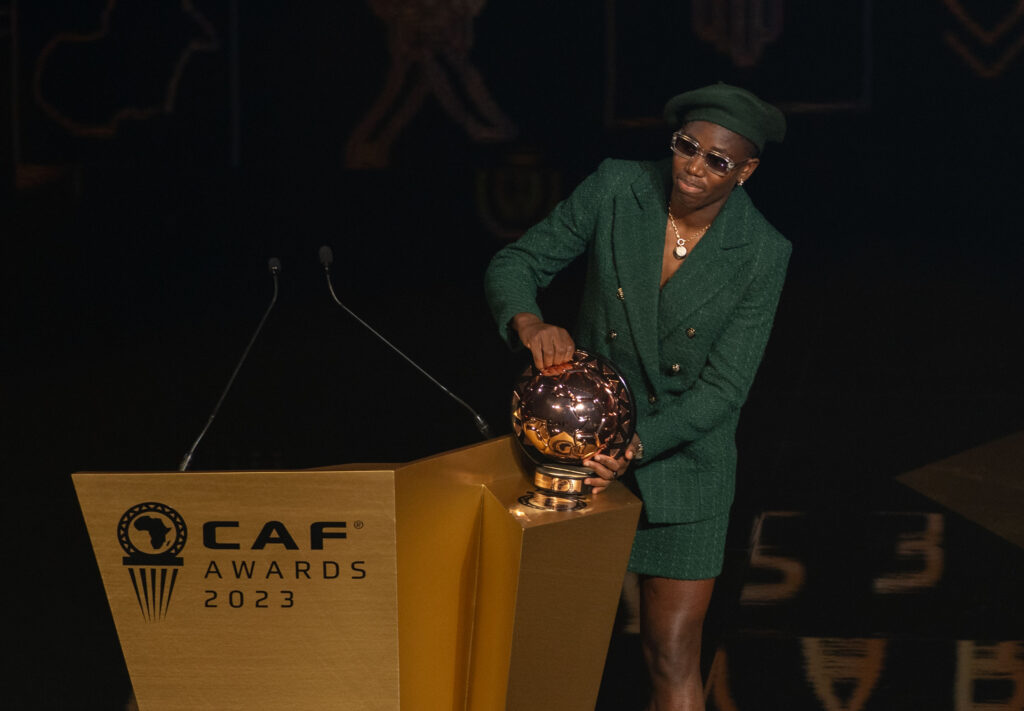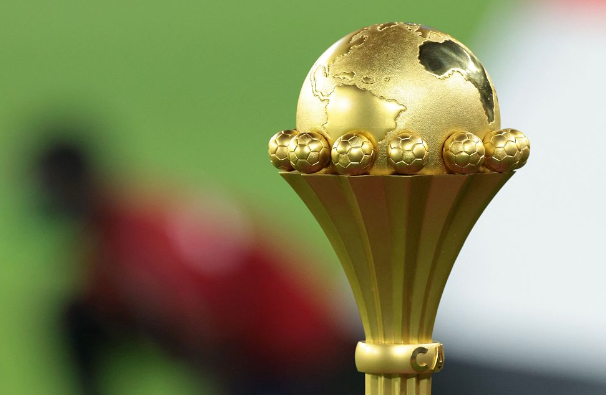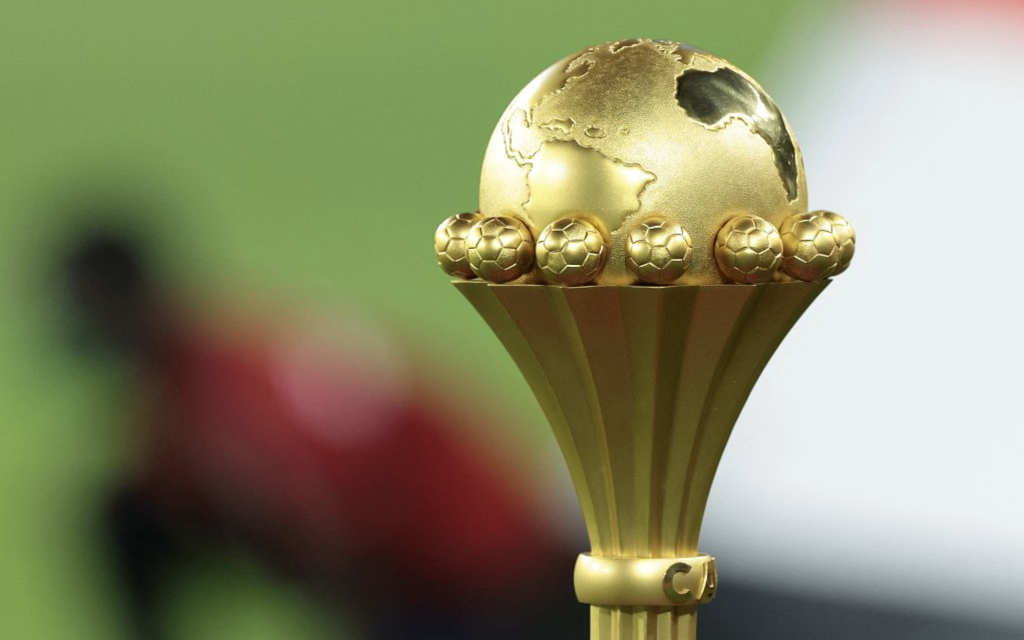By DavidOchieng Mbewa

Last season, Tanzanian club, Young Africans suffered heartache after coming close to lifting its first major continental title.
Young Africans, or Yanga, as they are affectionately known, lost a dramatic CAF Confederation Cup final to Algeria’s USM Alger. The Tanzanian side secured a 1-0 win in its second leg but a 2-1 defeat at home in the first leg meant they lost the tie on the away goals rule.
Young Africans emerged stronger this season. This time, they roared through the qualifying rounds and booked a place in the group stage of the CAF Champions League. Despite a slow start in Group D, they eventually found their footing and managed to qualify for the quarterfinals.
Now, into the quarterfinals of Africa’s premier club competition for the first time, the current Tanzanian champions hope to become the first side from East Africa to win the African Champions League. South African giants, Mamelodi Sundowns stand in Yanga’s way.
Sundowns are undoubtedly one of Africa’s biggest clubs. Dominant at home, they have won their domestic league for the last six seasons in a row. They also won the Champions League in 2016 and are the current holders of the African Football League title.
As formidable an opponent as Sundowns are, Young Africans club president Hersi Ally Said assured fans that the team is ready for a major battle to advance to the last four.
Ally stressed that home advantage and the crowd could play a big part in Yanga potentially securing a decisive advantage. Young Africans will host the first leg in Dar es Salaam on March 29-30. The second leg takes place in South Africa on April 5.
“For us, Young Africans, as a club, this is historic to be in the quarterfinal and advancing to the semifinal,” Ally said in a video message. “We need members and fans of our club to come out in numbers and support the team during the home leg that will begin here.”
“That game can be one of the chapters in the club making history in the quest to advance to the semifinal, final, and win the title.”
Young Africans may not have faced Sundowns before, but the team hopes to replicate the results of their last encounter against a South African side in CAF club competitions.
During last year’s Confederation Cup, the Tanzanian side ran out 4-1 aggregate winners against Marumo Gallants in the semifinal, winning both home and away legs.
Nigeria’s Osimhen, Oshoala win African Footballer of the Year awards
By MathewsMutai

Nigerian star Victor Osimhen was named African Footballer of the Year on Monday night at the 2023 CAF Awards ceremony with his compatriot Asisat Oshoala taking home the top prize in the women’s category.
Napoli striker Osimhen beat competition from Egypt’s Liverpool forward Salah and Morocco’s Paris St Germain right-back Achraf Hakimi who were the other two final nominees.
By claiming the coveted honour, the 24-year-old became the first Nigerian winner since Nwankwo Kanu in 1999.
It capped a memorable year for the player who excelled last season for Napoli, scoring 31 goals in all competitions to help them win the Italian Serie A title after a 33-year drought.
“It’s a dream come true for me. I appreciate Nigerians for their support. I appreciate Africa for putting me on the map, encouraging me, and defending me, regardless of my shortcomings,” Osimhen said.

Barcelona forward Oshoala completed the Nigerian double by winning the women’s African Footballer of the Year for a record sixth time following previous successes in 2014, 2016, 2017, 2019 and 2022.
Morocco won National Team of the Year in the men’s category after their thrilling run to the World Cup semi-finals in Qatar, while their manager Walid Regragui won Coach of the Year.
Nigeria took home the trophy for National Team of the Year, but South Africa’s Desiree Ellis won women’s Coach of the Year for the fourth time in succession.
Nigeria striker Osimhen crowned African Footballer of the Year
Reuters

Nigeria striker Victor Osimhen has been named African Footballer of the Year after beating Mohamed Salah to the award at a ceremony in Marrakech on Monday, with compatriot Asisat Oshoala winning the top prize in the women’s category.
Osimhen, 24, scored 26 goals as he helped Napoli to a surprise triumph in Serie A last season and was the leading marksmen in Italy’s top division.
Egypt’s Liverpool forward Salah and Morocco’s Paris St Germain right-back Achraf Hakimi were the other two final nominees but Osimhen claimed the prize to become the first Nigerian winner since Nwankwo Kanu in 1999.
“It is a dream come true. I have to thank everybody who has helped me on this journey and all Africans who have helped to put me on the map despite my faults,” Osimhen said.
Morocco won National Team of the Year in the men’s category after their thrilling run to the World Cup semi-finals in Qatar, while their manager Walid Regragui won Coach of the Year.
Nigeria’s Barcelona forward Oshoala was the women’s African Footballer of the Year for a record sixth time, having battled injury to help her side to the round of 16 at the World Cup in Australia & New Zealand where they took England to penalties.
Nigeria took home the trophy for National Team of the Year, but South Africa’s Desiree Ellis won women’s Coach of the Year for the fourth time in succession.
NBA launches office in Kenya
The East African

It is a new dawn for Kenyan basketball following the launch of National Basketball Association (NBA) office in Nairobi.
Five-time NBA champion Ron Harper, NBA Africa Chief Executive Officer Victor Williams and Basketball Africa League (Bal) President Amadou Gallo Fall are among the dignitaries who attended the event held Wednesday evening at Sankara Hotel in Nairobi.
Others included NBA Kenya Senior Director and Country Operations Lead Michale Finley, NBA Africa Head of Basketball Operations Frank Traore and Kenya Basketball Federation President Paul Otula.
Earlier in the day, Harper paid a courtesy call to President William Ruto at state house in Nairobi before conducting a basketball clinic for 70 budding basketballers at Sabis International School, Runda in Nairobi.
Ruto described the initiative as a turning point in the development of the sport in the country. He said the move will give Kenyan youth the opportunity to pursue professional basketball.“Professional basketball promises to enhance talent commercialisation and transform the lives of our youth,” Ruto said.
At Sabis International School, the basketball clinic was also attended by US Ambassador to Kenya Margaret Whitman.
Addressing the press on the sidelines of the basketball clinic, Harper said Africa has a great potential in basketball and it is his wish to see more players from the continent playing in the NBA.“A few years from today, I would like to see some of these players get to the junior academies and get a chance to become future NBA players. I always say that in the next five to 10 years, there will be a lot of great players from Africa, not only in Kenya,” said Harper.
Williams said NBA opted to have the office in Kenya since “it has a great basketball potential” thus a priority market for NBA.
Egypt, Senegal, South Africa and Nigeria are the only other African countries hosting NBA offices.
Williams said having the office in the country will see NBA work closely with the national government to actualise the Memorandum of Understanding (MoU) they signed on September 22.
The MoU to develop basketball in the country is expected to expand basketball in the Kenyan education curriculum, with teachers and coaches being trained on the sport. Referees will also benefit from NBA clinics.
While emphasising on the need for Kenya to establish world-class basketball facilities, Finley said having NBA in the country will go a long way in improving on the “solid school basketball structure.”He said that with several organisations, including the French Development Agency, having shown interest in partnering NBA in the initiative, they hope to set the ball rolling in the first quarter of 2024.“Kenya in my humble opinion has worked harder on the grassroots level of the game than many African countries. Now with the NBA coming, we are able to help contribute to that by adding additional structures, bring a bit more attention and hopefully corporate Kenya into the game and help it grow,” he said.
Amadou urged KBF to make the local league vibrant so that Kenyan teams can in the near future qualify for the Basketball Africa League (Bal).
He said with a proper basketball arena in Kenya, they will be happy to host some of their events in the country.
US Ambassador Whitman said: “This is very significant for the relationship between Kenya and the US. Everyone knows the NBA, they chose to come to Kenya and are building 6,000 basketball courts for the youth. Basketball used to be a bigger sport in Kenya so I know the government and NBA will bring that back starting with kids.”
Morocco to build new stadium, upgrade six others before 2030 World Cup
Reuters

RABAT, Oct 20 (Reuters) – Morocco plans to build a large stadium in Benslimane, near Casablanca, and upgrade six others in preparation for co-hosting the 2030 World Cup, the prime minister’s office said on Friday.
A deal was signed the same day between the government and state-owned fund CDG to finance the new stadium to be ready by 2028 for a total cost of 5 billion dirhams ($500 million), the office said in a statement.
The six stadiums- to be renovated to host the African cup of nations in 2025 and the 2030 World Cup- are in the cities of Agadir, Casablanca Fez, Marrakech, Rabat and Tangier, it said.
Earlier this month, FIFA allocated the 2030 World Cup to Morocco, Spain and Portugal but also said Uruguay, Argentina and Paraguay would host three matches to mark the tournament’s centenary.
Morocco will be the second African country to host the World Cup after South Africa in 2010.
Reporting by Ahmed Eljechtimi; editing by Jonathan Oatis
Rugby World Cup 2023 quarter-finals confirmed, South Africa to take on France
By JerryOwilli

Marrakech – Morocco’s largest pharmaceutical company Sothema is looking for partnerships to set up a plant in east Africa as part of its expansion strategy in the continent, Sothema CEO Lamia Tazi said on Monday.
The east Africa plant would be the second for the Casablanca-listed company outside Morocco after Senegal, where it manufactures a range of products including anti-malaria drugs.
“The next step is east Africa. We started prospecting two years ago… we have some opportunities to build something new,” Tazi told Reuters on the sidelines of the IMF-World Bank annual meetings in Marrakech.
She did not name the potential partners Sothema is in talks with but said the new plant would focus on “high added value products,” linked to oncology and diabetes, among others.
Sothema is expected to proceed to raising capital once it seals the partnership deal, she said.
Morocco’s pharmaceutical industry, the second largest in Africa, is bracing for an expansion at home on the back of Morocco’s plan to generalize health insurance and the ensuing rise in demand for medicine.
Sothema is currently developing cannabis-based treatments focusing on pain management and epilepsy.
Putting these products in the market would take up to two years, she said.
Sothema is part of Moroccan public and private companies including banks, telecom, fertilizer maker and airlines that rolled out investments in Africa.
Despite the impact of inflation on production costs, Sothema’s profit grew 9.3% last year to 282 million dirhams ($27.2 million.)
CAF announces hosts of 2025 and 2027 Africa Cup of Nations
By DavidOchieng Mbewa

Morocco will host the 2025 Africa Cup of Nations and the trio of East African nations – Kenya, Uganda and Tanzania – will host the 2027 Africa Cup of Nations.
CAF President Patrice Motsepe made the announcement during a meeting of the CAF Executive Committee on Wednesday.
Motsepe said he was “immensely proud” of the chosen host nations and assured fans and stakeholders that the tournaments will be “world class”.
This will be the second time that Morocco will host the tournament, with the first time being in 1988.
Meanwhile, it will be an historic moment for Kenya, Uganda and Tanzania who will host the tournament for the very first time.
However, the East Africa sub-region, under the Council for East and Central Africa Football Associations (CECAFA), has hosted the tournament before with Sudan (1957 and 1970) and Ethiopia (1962, 1968 and 1976) hosting it a combined total of five times.
Motsepe said he wanted to see the AFCON go to nations that have not hosted it before.
“We don’t want AFCON to be held in one zone and in one region. We are going to spread it around and contribute to growth and development of football.”
The 2027 AFCON tournament will also be the first time the tournament will be hosted by three countries. But the Africa Cup of Nations has been co-hosted twice before, with Ghana and Nigeria hosting the tournament in 2000 and Gabon and Equatorial Guinea hosting it in 2012.
Motsepe said CAF will send teams on an ongoing basis to form an evaluation of the progress being made by the host nations as they prepare for the tournaments.
“We are very strict in the requirements we are placing on these countries both in terms of freedom of movement of people in and out of the countries and the support, the infrastructure and cooperation.”
Cameroon, Namibia round off AFCON 2023 qualification
By JerryOwilli

All 24 slots for the 2023 Africa Cup of Nations have been filled after Cameroon and Namibia qualified on Tuesday night.
The five-time African Champions, Cameroon, beat Burundi 3-0 on the last match day of the AFCON qualifiers to seal their spot, also ensuring Namibia qualify as runners up.
The two teams from Group C played only four games in their qualification journeys after Kenya was slapped with a FIFA ban, rendering the Harambee Stars ineligible to participate.
The Indomitable Lions and the Southern African country’s Brave Warriors join an impressive list of teams that will battle it out for honors in the continental tournament that will be staged in Côte d’Ivoire in January-February 2024.
Cameroon will be looking forward to playing in Côte d’Ivoire, having won the competition the last time the West African country hosted the event in 1984.
Coach Rigobert Song and his side will be tasked with hunting down an elusive sixth AFCON title, having failed to deliver on home soil in the last edition held in 2022.
Other countries that have qualified for AFCON 2023 are; Côte d’Ivoire, Algeria, Angola, Burkina Faso, Cameroon, Cape Verde, DR Congo, Egypt, Equatorial Guinea, Gambia, Ghana, Guinea, Guinea-Bissau, Mali, Mauritania, Morocco, Mozambique, Namibia, Nigeria, Senegal, South Africa, Tanzania, Tunisia and Zambia.
Ghana, Angola and Tanzania qualify for Africa Cup of Nations finals
Reuters News

CAPE TOWN – Ghana, Angola and Tanzania qualified for January’s African Cup of Nations finals when they finished in the top two of their respective groups on Thursday, leaving only six more places to be decided in the next days for the 24-team tournament in the Ivory Coast.
Ghana and Angola finished one-two in Group E while Tanzania forced an unlikely goalless draw away in Algeria to also go through.
The result denied already qualified Algeria the chance of being the only country to complete the qualifying campaign with a 100% record.
Tanzania’s point in Annaba also left neighbours Uganda falling one point short despite beating Niger 2-0 away.
Algeria topped Group F with 16 points from six games with Tanzania on eight and Uganda on seven.
It was a startling scoreline for the Tanzanians, who were given little chance against Algeria but benefited from the fact that their opponents left Said Benrahma and Riyad Mahrez on the bench until the second half when they made little impact after coming on.
Uganda had started their game in neutral Morocco hoping Algeria would do them a favour and beat Tanzania, leaving them sure to advance if they beat Niger. They did their bit with two first-half goals from Aziz Kayondo and Joseph Ochaya but did not get the result they needed from the other group game.
Substitute Ernest Nuamah scored two minutes from time to secure a come-from-behind 2-1 victory for Ghana over the Central African Republic in Kumasi while Angola also qualified despite being held to a goalless draw in Lubango by already-eliminated Madagascar.
Ghana finished top of Group E on 12 points with Angola on nine, two more than the Central African Republic, who had needed to win their final match to qualify for the first time.
The Central African Republic went ahead through stand-in skipper Louis Mafouta as they tried to write history, even without injured captain and Olympique de Marseille midfielder Geoffrey Kondogbia.
West Ham United’s new signing Mohammed Kudus equalised for Ghana just before halftime and Antoine Semenyo set up the winner when he stripped the visiting defence of the ball and unselfishly passed for the 19-year-old Nuamah to net the winner from close range.
The newly qualified teams will join Algeria, Burkina Faso, the Cape Verde Islands, Egypt, Equatorial Guinea, Guinea, Guinea Bissau, Mali, Morocco, Nigeria, Senegal, South Africa, Tunisia and Zambia at the finals in the Ivory Coast, who qualified automatically as hosts.
Tunisia beat Botswana to finish first in Group J but needed a 60th-minute own goal from Alford Velaphi to break the deadlock before going on to win 3-0. The Tunisians had already qualified but edged Equatorial Guinea out of top place. Equatorial Guinea drew 1-1 away in Libya on Wednesday.
There are more qualifiers on Friday but the next decisive ties come on Saturday.
South Africa’s Maharaj, Magala included in World Cup squad
Reuters

Sept 5 (Reuters) – South Africa have included spinner Keshav Maharaj and seamer Sisanda Magala in their World Cup squad after the pair overcame fitness concerns, while wicketkeeper-batter Quinton de Kock announced he would retire from the format after the tournament.
Coach Rob Walter has included only seven players with past World Cup experience as South Africa seek to lift a trophy that has eluded them in oftentimes bizarre circumstances since they made their debut in 1992.
The squad will be captained by batter Temba Bavuma, with Maharaj overcoming a ruptured Achilles. He played for the first time since March in South Africa’s five-wicket Twenty20 International loss to Australia on Sunday.
Magala had been laid low by a knee injury and missed that series, but his clever change of pace and guile with the ball will be an asset on Indian wickets.
Experienced all-rounder Wayne Parnell is a notable absentee but has been struggling with a shoulder injury, while young batters Dewald Brevis and Tristan Stubbs have not been selected.
South Africa go into the tournament with two frontline spinners in Maharaj and Tabraiz Shamsi, though batter Aiden Markram is a more than useful third option.
“It’s great having a mix of experienced players and players who will be competing in their first 50-over World Cup – you get that sort of exuberance of excitement to be doing something for the first time,” Walter said.
“Similar to the level of experience, we have endeavoured to curate a well-balanced group of players and skill that will allow us to effectively adapt to the conditions in India.”
The 30-year-old De Kock, who has already retired from Test cricket, confirmed he will not play One-Day Internationals beyond the World Cup.
“We understand his decision to step back from ODI cricket and we want to thank him for his service over the years,” South Africa’s director of cricket Enoch Nkwe said.
“We wish him well for the future but still look forward to seeing him represent the Proteas in T20 cricket.”
The team begin their campaign against Sri Lanka on Oct. 7.
South Africa squad:
Temba Bavuma (captain), Gerald Coetzee, Quinton de Kock, Reeza Hendricks, Marco Jansen, Heinrich Klaasen, Sisanda Magala, Keshav Maharaj, Aiden Markram, David Miller, Lungi Ngidi, Anrich Nortje, Kagiso Rabada, Tabraiz Shamsi, Rassie van der Dussen.

